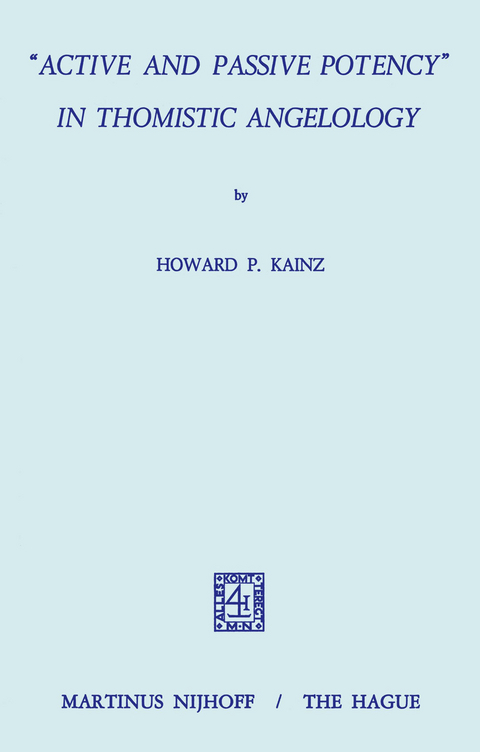
“Active and Passive Potency” in Thomistic Angelology
Kluwer Academic Publishers (Verlag)
978-90-247-1295-3 (ISBN)
Preface.- A. “Separate Substances” and/or “Angels”?.- B. Separate Substances Revisited : The Present Situation.- I. Introduction.- II. The Thomistic Doctrine on Potency.- A. The distinction of Actual from Potential Being.- B. Potency as a Principle of Being.- C. The Primordial Types — Active and Passive.- D. Subdivisions of Active and Passive Potency.- III. The Powers of Separate Substances.- A. Problems Arising in the Investigation of These Powers.- B. Means of Demonstration Proposed by St. Thomas.- C. The Relationship of Physical Bases to Metaphysical Conclusions.- D. The Power of Self-Motion in Separate Substances.- E. The Power of Intellection in Separate Substances.- F. The Power of Volition in Separate Substances.- G. The Hierarchical Disposition of Separate Substances on the Basis of These Powers.- IV. The Capacities of Separate Substances.- A. Means of Investigation of These Capacities.- B. The Capacity for Existence (Esse) in Separate Substances.- C. The Capacity for Justification in Separate Substances.- D. The Capacity for Local Transmutability in Separate Substances.- E. The Relative Capacities of the Angelic Hierarchies.- Index of Names.
| Erscheint lt. Verlag | 31.7.1972 |
|---|---|
| Zusatzinfo | 111 p. |
| Verlagsort | Dordrecht |
| Sprache | englisch |
| Maße | 156 x 244 mm |
| Themenwelt | Geisteswissenschaften ► Philosophie ► Allgemeines / Lexika |
| Geisteswissenschaften ► Philosophie ► Erkenntnistheorie / Wissenschaftstheorie | |
| Geisteswissenschaften ► Philosophie ► Metaphysik / Ontologie | |
| Geisteswissenschaften ► Philosophie ► Sprachphilosophie | |
| ISBN-10 | 90-247-1295-5 / 9024712955 |
| ISBN-13 | 978-90-247-1295-3 / 9789024712953 |
| Zustand | Neuware |
| Haben Sie eine Frage zum Produkt? |
aus dem Bereich


